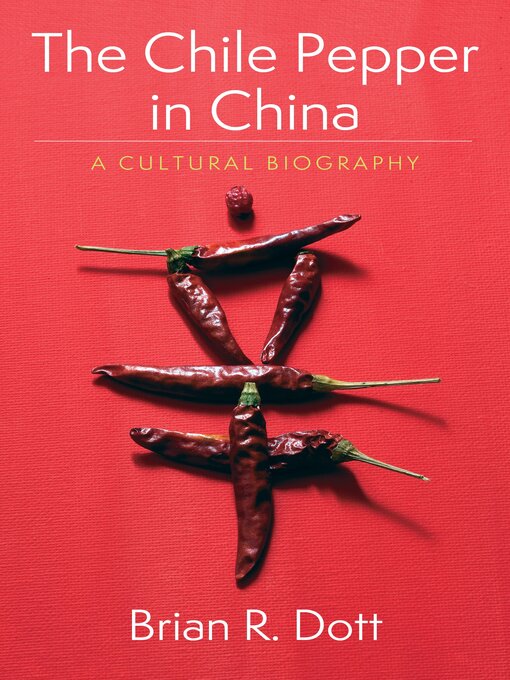Chinese cuisine without chile peppers seems unimaginable. Entranced by the fiery taste, diners worldwide have fallen for Chinese cooking. In China, chiles are everywhere, from dried peppers hanging from eaves to Mao's boast that revolution would be impossible without chiles, from the eighteenth-century novel Dream of the Red Chamber to contemporary music videos. Indeed, they are so common that many Chinese assume they are native. Yet there were no chiles anywhere in China prior to the 1570s, when they were introduced from the Americas.
Brian R. Dott explores how the nonnative chile went from obscurity to ubiquity in China, influencing not just cuisine but also medicine, language, and cultural identity. He details how its versatility became essential to a variety of regional cuisines and swayed both elite and popular medical and healing practices. Dott tracks the cultural meaning of the chile across a wide swath of literary texts and artworks, revealing how the spread of chiles fundamentally altered the meaning of the term spicy. He emphasizes the intersection between food and gender, tracing the chile as a symbol for both male virility and female passion. Integrating food studies, the history of medicine, and Chinese cultural history, The Chile Pepper in China sheds new light on the piquant cultural impact of a potent plant and raises broader questions regarding notions of authenticity in cuisine.
- Available now
- New eBook additions
- New kids additions
- New teen additions
- Most popular
- Try something different
- Manga to Read (or Re-Read)
- Elections, Coups, & Sociopolitical Upheaval
- Celebrating Indigenous Peoples
- Manga
- See all
- Available now
- New audiobook additions
- New kids additions
- New teen additions
- Most popular
- Try something different
- See all

